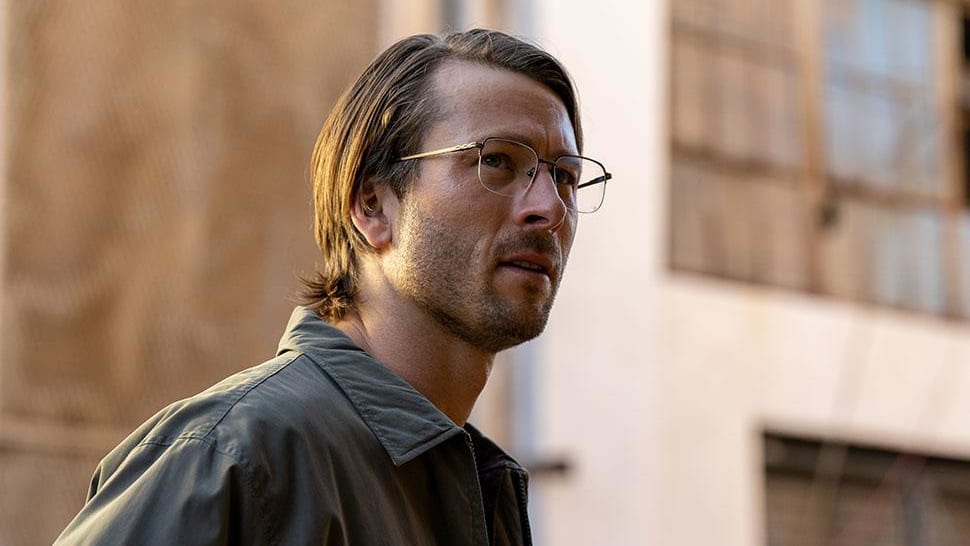Courtesy of Venice Film Festival
VENICE, Italy—Richard Linklater has always been fascinated by language, particularly in the Before trilogy and, within that, particularly in Before Sunset, where both lovers are chatty but Ethan Hawke, as Jesse, dominates conversation, exploiting his facility for sweet-talk to seduce Céline (Julie Delpy). The subsequent films in the trilogy course-correct that imbalance, with Delpy having more input in the screenplay: Céline starts to meet Jesse’s dreamy romanticism with a frank, no-nonsense irony.
Thoughts of those films come to mind, at times, when watching Linklater’s latest, Hit Man, in which Glen Powell plays Gary Johnson, a cop who moonlights as a pretend hitman in order to arrest people seeking the services of a contract killer. All he needs to do is extract a clear demand for a killing and money for the service, and the arrest can be made. Gary, at the outset of the story, is a shy and somewhat bumbling professor of philosophy who works as an investigator in his spare time and who, when a colleague suddenly falls ill, is asked to step in at the last minute and encounter a man who is seeking the services of a professional killer.
Terrified by this prospect, he nevertheless finds over the course of this meeting—which is brilliantly played for laughs by Linklater and Powell, the co-writers of this film—that he is natural at the job because of his gift for rhetoric. Indeed, in a way that calls to mind Breaking Bad, this gentle, educated man soon finds that his alter ego for the purposes of the job, Ron, offers him an outlet for another side of his personality that had lain dormant—a more extroverted persona, assured and cool. And, also like in Breaking Bad, the secondary persona is in danger of swamping the primary: that is, Gary gets in too deep, blurring the line between his law-abiding self and his maverick, reckless identity.

